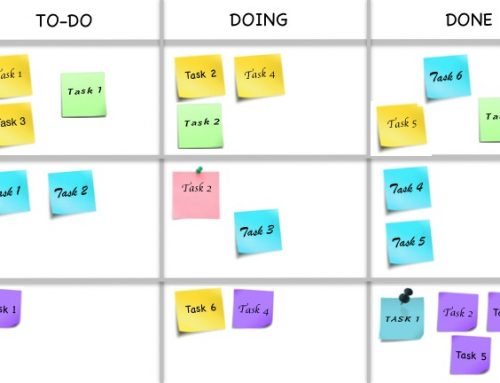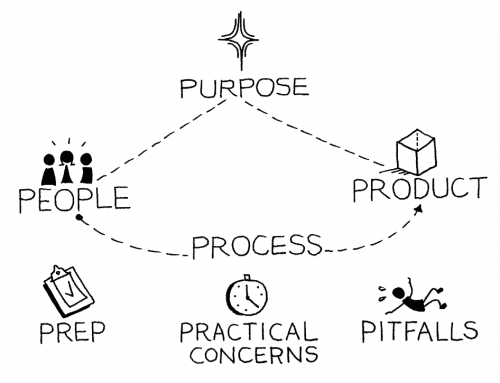“The spectacles of experience; through them you will see clearly a second time.” Henrik Ibsen
Why leave your next project to chance? A proper debriefing on the project you just finished can give you a tremendously powerful launch on your next project. This type of project evaluation will formalize learning your successes and mistakes– allowing you to build on the former while avoiding the latter.
Debriefing originated in the military in order to better understand a battle and the specific roles played by units and individuals. The emphasis is on learning from the experience and for the duration of the debriefing there are no ranks- all are equal in what they saw, heard, and felt. The technique later spread to psychological research, space exploration, simulation analysis, and medicine.
At BrainSpores, when we finish a project, we sit down over coffee, tea and cookies and analyze how the project went. We review the whole process– from planning and execution to finish. We discuss and write down what went well, what didn’t go so well, and how we could do it better next time. The atmosphere is relaxed and open. Importantly, we focus on the successes, not just on those factors that went awry.
Do this to debrief on your next project evaluation, it is quite simple:
Get all of your core project team members together (remember to bring the goodies as an enticement!). Set out the goals and keep it lighthearted; we are here to learn, everyone makes mistakes, everyone gets heard, and there are no personal attacks.
Now, each person writes down for themselves:
- Three things that went well.
- Three things that did not go so well.
When everyone has finished writing, one person starts by stating their first item from the “Went Well” list- shortly elaborating on the “why it went well”. Continue to the next person until all the Went Wells are covered. Discuss each statement and take notes to synthesize the learning.
Next, do the same for the “Did Not Go So Well” list. It is important to focus on constructive criticism, staying away from personal attacks. Remember, the environment has to encourage team members to participate without any fear of retribution. During the discussions, pay particular attention to problem solving– the idea isn’t to air grievances.
Once everyone has listed the successes and not-so-much-successes, consolidate what has been discussed, draw up next steps (action items) and assign owners.
It is reasonable for the project leader or lead investigator that called the meeting to follow-up the debrief and project evaluation action items. Some may not be executable before the next project starts, while others need to be executed rapidly to be ready before the next project starts.
How well does it work? Well, we even use it to evaluate our camping trips. On the return ride we pass the time reliving the experiences, laughing about what didn’t work, and taking notes on what to change before the next trip. And you know what? Our camping has become enormously more pleasurable!
Debriefing helps us to focus constructively and learn from our mistakes. It prevents us from dwelling in a rut by staking out a new and more conducive course of action. It helps us get out in the open things that we are not happy by creating a setting that takes the edge off what would otherwise be a tense conversation. Not the least- it makes us able to start new projects more efficiently, with an open mind and higher confidence.
Leave a comment on how you do project evaluation and and how similar techniques work for you.







Leave A Comment